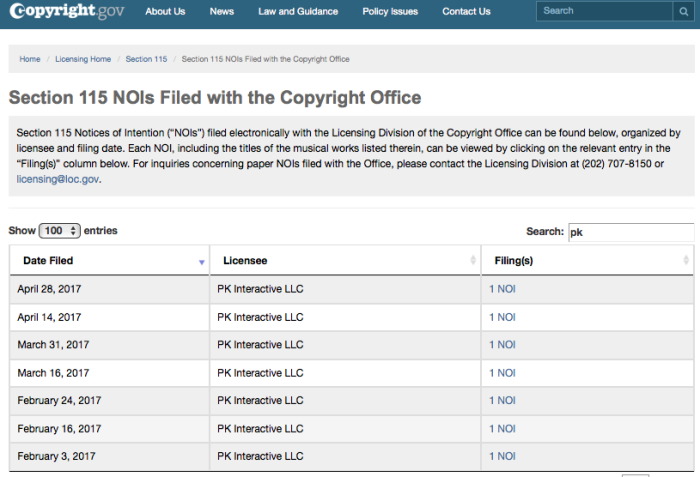The Music Managers Forum UK have criticized the “secrecy” arounds Spotify’s deals with major labels. According to Complete Music Update:
The UK’s Music Managers Forum yesterday welcomed the news that Spotify had reached a new deal with Universal Music. However, the trade body criticised the continued secrecy that surrounds the deals made between the major record companies and the streaming services. This secrecy means that artists signed to or distributed by those labels are not allowed to know the specifics of how their music is being monetised.
The same criticism could equally be made of non-statutory, statutory, or direct agreements by digital aggregators like CD Baby, Tunecore, LyricFind, Pledge Music, the Orchard and Loudr, each of which offer varying degrees of transparency of their own books, much less the deals they’ve made with digital services on behalf of the artists, songwriters, labels and music publishers appointing them as agents for relicense of music. (Loudr, for example, has recently started participating in the most obscure licensing process of all, the mass NOI registrations with the Copyright Office. Read more about that on another series of MTS posts or my recent article in an American Bar Association journal. At least with mass NOIs, songwriters know what their royalty is–zero.)

It is probably fair to say that there is no disclosure of the actual terms of the direct licenses between these aggregators and the services concerned. It may also be possible that no one has ever asked the aggregators for the terms of their deals.
That’s a real head scratcher because arguably those aggregators have an even greater obligation to disclose these terms given they cater to many artists, songwriters, music publishers and labels who are unlikely to have the means–even if they have the right–to conduct a royalty examination of any of these companies. However big a problem anyone has with major labels, every major label artist and major publisher songwriter takes their “audit” rights for granted.
It would be very simple for aggregators to disclose the terms of their deals or to at least summarize them so that artists or songwriters who are considering who to sign with could compare payouts. It’s fine to tell people what their royalty split, flat fee, or distribution fee might be, but the assumption is that the revenue stream being shared is identical from one aggregator to another.
Also remember that it is common for music services to pay “nonrecoupable” payments to labels–just like it was for record clubs. This comes in the form of “breakage” or “technology payments” or other ways to keep the money from being called a royalty. We know this very likely happens with major labels although the amounts are not disclosed–hence the MMF UK’s beef. We have no way of knowing if it happens with digital aggregators or even what the basic terms of the deals are, which makes it difficult to conduct a desktop audit (the precursor to a full-blown field audit), much less an exhaustive royalty examination.
So let’s not limit the transparency concern to just the major labels. The digital aggregators could easily lead the way forward by posting the terms of their deals with digital services. Unless of course the problem lies as much with the digital services as it does with the labels.